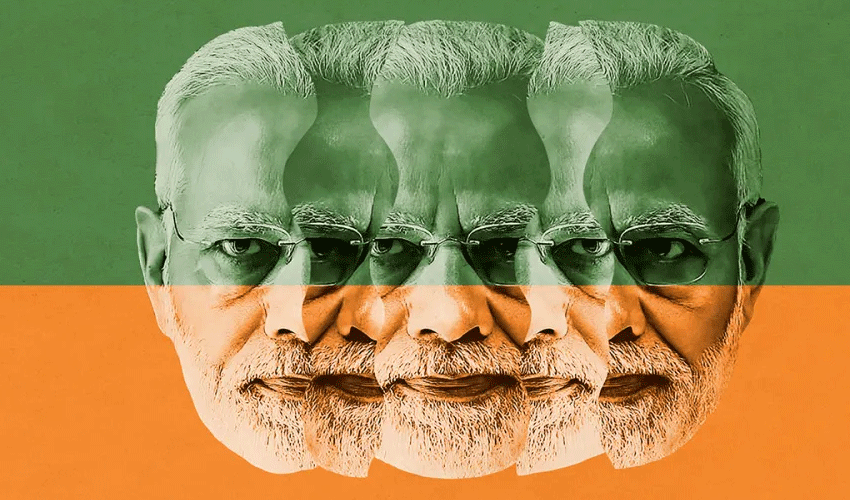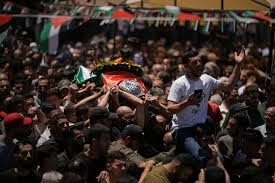Israeli air and ground assaults killed at least 60 people across Gaza on Monday, marking one of the heaviest days of attacks in recent weeks, even as Israeli officials prepared for key ceasefire talks in Washington initiated by US President Donald Trump.
President Trump, calling for a breakthrough with his appeal to “Make the deal in Gaza, get the hostages back,” is hosting Israeli Strategic Affairs Minister Ron Dermer for discussions focused on Gaza and Iran. Dermer, a close aide to Prime Minister Benjamin Netanyahu, is expected to begin meetings with US officials on Tuesday.
However, on the ground in Gaza, the conflict showed no signs of slowing. The Israeli military issued fresh evacuation orders for large sections of northern Gaza, triggering another wave of displacement. Civilians reported relentless bombardment of schools, homes, and shelters.
“Explosions never stopped; they bombed schools and homes. It felt like earthquakes,” said Salah, a 60-year-old father of five from Gaza City. Another displaced woman, Amani Swalha, standing in the ruins of a school, said: “It is our right to live, and to live with dignity, not like this in humiliation.”
Israeli tanks pushed into the Zeitoun suburb of Gaza City, while warplanes bombed at least four schools after ordering families sheltering inside to leave. According to Gaza health authorities, at least 58 people were killed on Monday alone, including 10 in Zeitoun and 13 southwest of Gaza City—many reportedly by gunfire and airstrikes.
A particularly deadly strike hit a beachfront café in Gaza City, killing 22 people, including women, children, and a local journalist. The Palestinian Journalist Syndicate says over 220 journalists have been killed since the war began in October 2023.
The Israeli military claimed it was targeting Hamas militants and command centers in northern Gaza, saying it took steps to minimize harm to civilians. However, there was no immediate Israeli comment on the reported deaths at the café or in southern Gaza.
The bombardment followed new evacuation directives, even in areas previously devastated by Israeli operations. Residents were ordered southward as Israel claimed renewed military objectives against Hamas fighters embedded in Gaza City.
Meanwhile, Dermer’s Washington visit is also expected to include discussions about Netanyahu’s possible upcoming visit to the White House. In Israel, Netanyahu’s security cabinet is meeting to determine the next steps in the conflict.
On Friday, Israel’s military chief claimed that the ground offensive was close to meeting its objectives, and by Sunday, Netanyahu said new chances had emerged to secure the release of remaining hostages—believed to be around 20 still alive.
Mediators Egypt and Qatar have intensified ceasefire efforts, though no new date for talks has been set. Hamas insists that Israel must commit to ending the war and withdrawing from Gaza before any agreement is finalized. Israel continues to demand that Hamas be dismantled and disarmed—a position Hamas rejects.
Israeli Foreign Minister Gideon Saar said Israel has accepted a US-proposed 60-day ceasefire and hostage exchange and that the next move depends on Hamas. “Israel is serious in its will to reach a hostage deal and ceasefire in Gaza,” he stated.
From Jerusalem, Austrian Foreign Minister Beate Meinl-Reisinger called the humanitarian situation in Gaza “unbearable,” warning that continued civilian suffering is straining Israel’s ties with Europe. She urged for an immediate ceasefire, the unconditional release of hostages by Hamas, and unimpeded humanitarian aid access.
Israel maintains that it is facilitating aid into Gaza but accuses Hamas of seizing supplies—a charge Hamas denies, saying Israel is weaponizing hunger.
The current ceasefire proposal would see Hamas release half the hostages in return for Palestinian prisoners and the remains of deceased Palestinians. The remaining hostages would be freed under a broader agreement that would bring an end to the war.
The war began on October 7, 2023, when Hamas launched a surprise attack on Israel, killing 1,200 people—mostly civilians—and taking 251 hostages. Since then, Israel’s military campaign has killed more than 56,000 Palestinians, displaced nearly the entire 2.3 million population, and created a deepening humanitarian catastrophe.
According to the UN, over 80% of Gaza is now either an Israeli-militarized zone or under orders of displacement.



